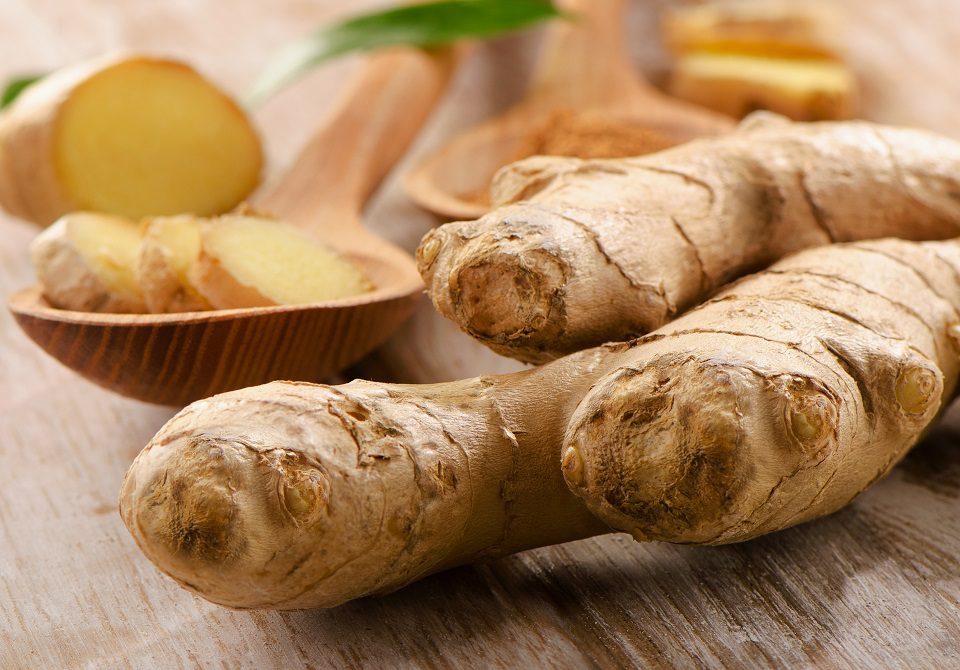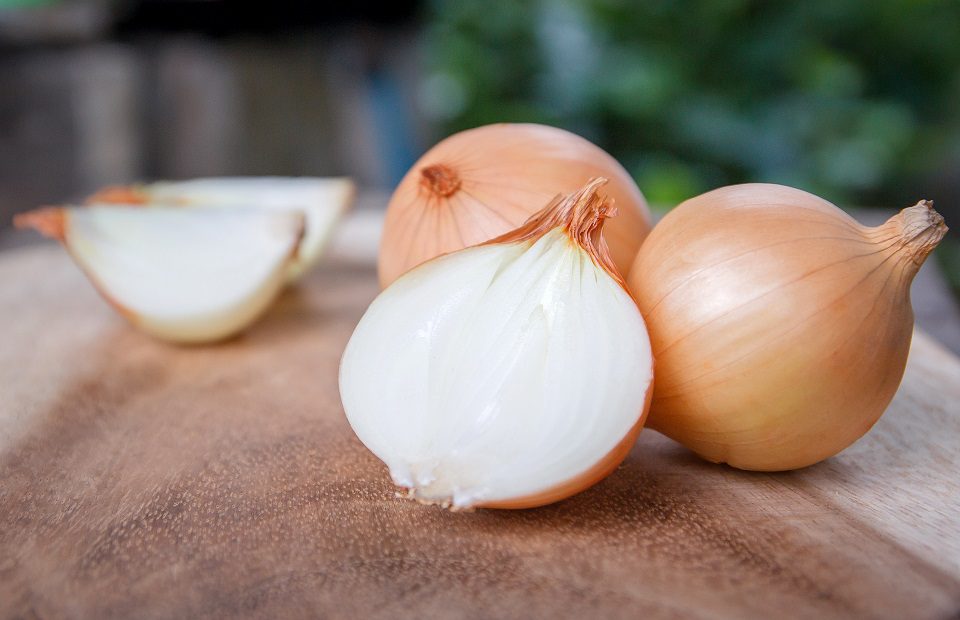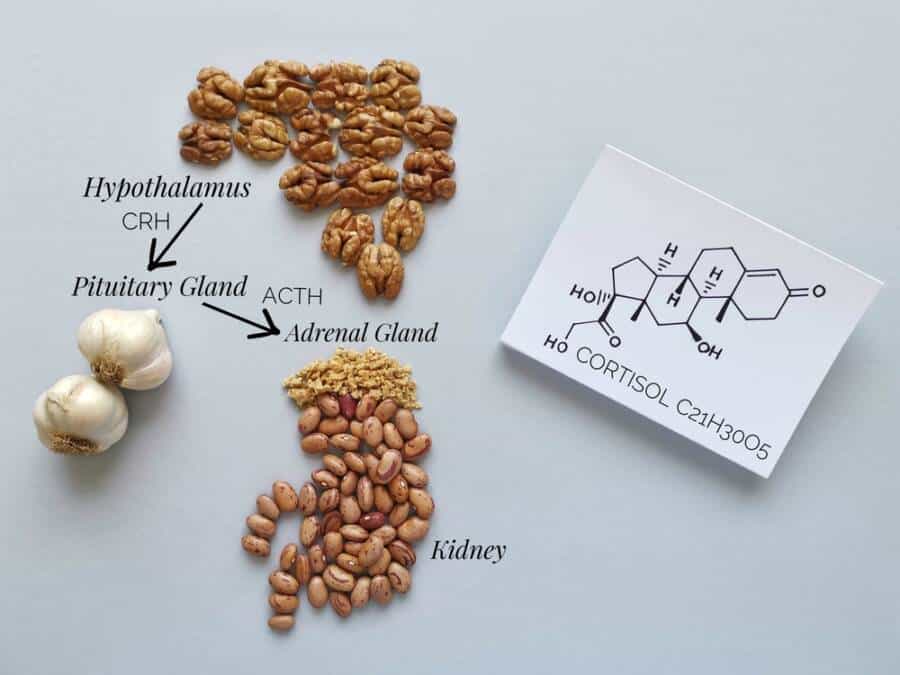Do you have issues with your gut?
Common gut issues such as bloating, constipation, and irritable bowel syndrome can destroy your day in several ways. And it’s not just your day affected, but your overall health, too. The good news is that the foods you put (or should) on your plate can relieve your gut problems.
Certain foods can help soothe bloating, relieve intestinal inflammation, and support digestion. So, if you’re one of the 70 million Americans affected by digestive symptoms, this article is definitely for you. Read on to discover the foods that play an important role in relieving gut issues; you probably don’t have them in your diet, so it’s time to change that.

Ginger
Ginger is probably not the first thing that pops into our heads when we think about foods that relieve gut issues, and yet, it is found on our list. A nutritional consultant, RDN, LDN, Allison Gregg, says that this herb is probably the best to soothe the digestive tract by relieving gas.
It seems that this popular root plant has the unique ability to calm intestinal activity by expelling gas from our digestive tracts. Ginger is also responsible for thinning the blood, which may help relieve bloating. In fact, most doctors recommended ginger tea to their patients whenever they feel queasy, as the spice relieves nausea.
Oats
If you choose to eat minimally processed oats with virtually no added sugar, your digestive health should be in check. For instance, Flahavan’s Quick Cook Steel Cut Oats are an excellent way to start your day with. They provide plenty of minerals and vitamins, and most importantly, the right amount of dietary fiber.
Matthew Kadey MSc, RD says that the main dietary fiber found in oats, beta-glucan is actually prebiotic. Studies suggest that diets rich in this type of prebiotics increase the beneficial bacteria found in the gut. The Harvard School of Public Health also noted that consuming oats on a regular basis leads to reduced inflammation.
Spinach
Can you name the mineral that has the ability to draw water into the intestines, therefore relieving constipation? No… Well, it’s magnesium, and luckily for you, spinach is abundant in this powerful mineral. In fact, most green leafy veggies are incredible sources of magnesium.
Chief Medical Director of SANESolution, Matt Olesiak, MD, says that studies also found that this leafy green contains decent amounts of sugar sulfoquinovose, an enzyme that promotes the growth of beneficial bacteria in the gut while limiting the growth of bad bacteria. So, no matter what leafy green veggies you choose, try to eat them more often!
Sauerkraut
Not just sauerkraut, but all fermented foods do wonders for your gut. They do so by promoting the growth of beneficial bacteria in the gut; thus, those who tend to consume fermented foods regularly have a pretty healthy digestive system.
They benefit even more because fermented foods are also responsible for keeping our immune system in tip-top shape and preventing mental health issues. Laura Poe Mathes, RD, says that sauerkraut can be easily added to your diet. You can even include it in your delicious sandwich or eaten directly from the jar. Consuming fermented foods is the easiest way to get more probiotics into your diet.
Salmon
Salmon is found in almost all of our healthy foods articles and for good reasons. Did you know that the omega-3 fatty acids found in most fatty fish like salmon are beneficial for your gut as well? As a matter of fact, studies suggest that salmon consumption can reduce inflammatory bowel disease activity while increasing remission time.
And it’s not just salmon—fatty fish like sardines, mackerel, anchovies, herring, and oysters and good too. If you don’t like eating fish, no problem… You can still enjoy omega-3 fatty acids properties by adding other foods to your diet like flaxseeds, chia seeds, soybeans, canola oil, walnuts, and pumpkin seeds. However, bear in mind that you can’t compare the benefits you get from omega-3s by consuming animal sources with the ones you get from plant sources.
Yogurt
For most of us, it comes as no surprise that yogurt is on this list, too. Because yogurt is abundant in probiotics that feed good bacteria that live in your digestive tract, nutritionists and health pros say that yogurt should be your first choice when dealing with gut issues.
The probiotics found in most yogurts help with constipation, diarrhea, and bloating. To get the best results, nutritionists recommend yogurts that contain live and active cultures! If you go Greek, you can’t go wrong. Ahh, and yes, avoid flavored yogurts like the plague—if you want a sweet taste, add some fresh berries to your plain yogurt, but never buy the flavored ones.
Honey
Bloating can have many root causes, so it can be pretty hard to pinpoint what’s causing it exactly. Regardless of the cause, eat some honey! Sany Younan Brikho, MDS, RDN, says that honey has a soothing effect on your digestive system, especially when it comes to inflammation in the gut.
Plus, many studies point out that honey contains a type of prebiotics called fructooligosaccharides that promotes the growth of probiotics found in the gut. This means that honey improves overall gut health. Brikho also added that PRI’s Manuka Honey is her favorite honey, mainly because it comes in different forms, so you can easily incorporate it into your diet.
Cottage Cheese
Another healthy food that you might miss from your diet is cottage cheese. Unfortunately, not all cottage cheese pack healthy probiotics. Make sure you get one that says like and active cultures on the label. According to a registered dietitian and the author of The Better Period Food Solution, racy Lockwood Beckerman, a good cottage cheese brand should heal the gut and some gut-related problems like IBS.
She suggests that the Good Culture line is pretty good, adding that their products may even combat inflammation while preventing stomach cramps, constipation, and diarrhea. So, what are you waiting for? Go to your local grocery store and get some Good Culture cottage cheese!
Whole Grains
Shannon Henry, RD, a registered dietitian working with EZCare Medical Clinic, notes that whole grains are able to support digestive health due to their high fiber content. The fiber found in whole grains can add bulk to your stool, feed healthy bacteria in the gut, and reduce constipation.
Studies suggest that brown rice is particularly beneficial when it comes to gut health. Because it contains insoluble fiber, brown rice consumption helps move bulk through your digestive system more easily. All nutritionists recommend eating brown rice when constipated. Therefore, it would be best to include it more often in your diet.

Onions
While they aren’t the tastiest food item on the planet, onions have a plethora of health benefits. Onions can fight inflammation, minimize triglycerides and decrease cholesterol levels, all of which are super beneficial for the health. On top of that, onions are also excellent for our gut health.
Their beneficial gut properties come from the type of fiber found in them (nondigestible fiber). Nondigestible fiber is fermented by the good bacteria in the colon, making a short-chain fatty acid POSTBiotic, which most doctors call butyrate. In clinical studies, butyrate was found to reduce inflammation in the gut and relieve several symptoms associated with Crohn’s disease, IBS, and ulcerative colitis.
Pulses
Be honest… When was the last time you eat pulses? A month ago? A year ago??? And you still wonder why you have gut issues like constipation? It shouldn’t surprise you at all since pulses like beans, chickpeas, and beans are needed for the proper functioning of the digestive system.
Beckerman says that all types of pulses are incredible sources of fiber that contribute to stool bulk. She suggests getting the ones from Bob’s Red Mill. They have a variety of high-quality and non-GMO pulses to choose from. Plus, it’s not just about the health of your digestive system, but your heart’s too. Pulses are heart-healthy foods, so you should definitely consume them more often.
You may also want to read 9 Surprisingly Good Uses For Salt.













